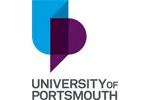We're moving! This site will be relocating to goingto.university in 2026. Please update your bookmarks to the new address.


the United Kingdom
University of Portsmouth| The award | How you will study | Study duration | Course start | Domestic course fees | International course fees |
|---|---|---|---|---|---|
| BA (Hons) | Full-time, Sandwich | 3 - 4 years | September | - | - |
Overview
Language shapes our experience of the world – from our social and emotional lives, to our experience of society, work, politics and culture. Immerse yourself in the nature of spoken and written language, and how it's used in everything from digital communication to forensic investigation.
You'll study how language works, including the relationships between language, the mind, and society, and how language varies through time, place, culture and identity. You'll explore the different ways people use language and what they use it for. Discover methods for analysing spoken and written language, how we learn language and how we teach it.
You'll develop sought-after skills including communication, creativity and critical thinking. You'll be taught by expert researchers and study alongside students within the School of Education, Languages and Linguistics – bringing opportunities to learn from the latest research and build intercultural relationships.
Course highlights
Careers and opportunities
You’ll graduate with specialist expertise in language and linguistics, plus sought-after employability skills including:
Previous graduates are now applying these skills in a diverse range of sectors and industries. If you decide to pursue a career that’s closely related to your studies, you could apply for jobs in writing, editing or publishing. Or employ your research and analysis skills to go on to postgraduate study, in areas such as speech therapy, communication studies, law and marketing.
This degree course gives you the freedom to explore topics and find areas you're most passionate about, and the foundation to pursue these areas after graduation. Further study in forensic linguistics could open up possible careers in law enforcement, criminal justice or legal firms. You could also develop your linguistic talents to work as a speech therapist or train actors to master different dialects.
What areas can you work in with an English language and linguistics degree?
You could work in any of the following areas:
Graduate destinations
Previous graduates have gone onto further training and work in various fields, including:
Below are some suggested courses at other providers that you may also be interested in:
Acting (Contemporary Performance) BA (Hons)
The Liverpool Institute for Performing Arts (LIPA)
Find out moreCoastal Communities and Regional Development Master Degree
University Centre of the Westfjords
Find out moreConsider a Foundation or Pathway course at University of Portsmouth to prepare for your chosen course:
If you do not meet the entry requirements for this course then consider one of these courses from another institution:
There are 529 other courses listed from University of Portsmouth. A selection of these are displayed below:
Join the StudyLink email list and never miss a chance to turn your study abroad dreams into reality!

Find out more about studying in the United Kingdom